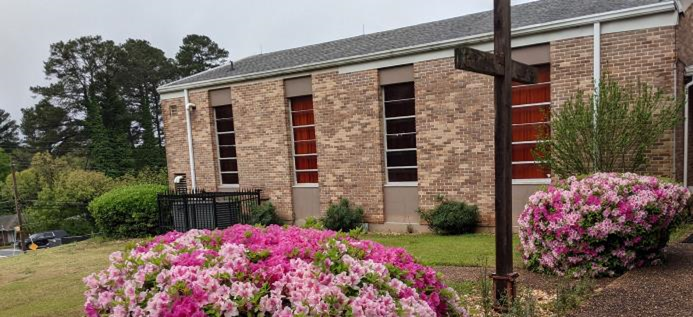Episodes

Friday Jun 12, 2020
Friday Jun 12, 2020
“Anatomy of an Illness: The Church’s Ministry of Healing”
John 9:13-16 (Part 2)
I First, sickness gets our attention and it gets the attention of Jesus (9:1).
II Second, sickness makes us uncomfortable (9:2).
III Third, sickness is caused by alienation (9:2).
IV Fourth, oftentimes our best theological or commonsense explanations for sickness are not good enough (9:3a).
V Fifth, sometimes sickness happens for a good reason, so that God can be glorified in our life (9:3b).
VI Sixth, all believers in Jesus are called to help sick people find health (9:4).
VII Seventh, sickness is a work of the kingdom of darkness; healing is a work of the Kingdom of light (9:5).
VIII Eighth, the how of healing is very important (9:6).
IX Ninth, sickness can be overcome by divine healing, but healing does not happen without some action on our part (9:7).
X Tenth, divine healing will always arouse doubt (9:8-9).
XI Eleventh, the response to the healing of sickness is often questions (9:10-12)
XII Twelfth, healing is not only a debated topic, it is also a very divisive issue.
A. Four truths stand out in these four verses:
1. First, people are often divided over what kind of authority to consult when a miracle has occurred.
2. Second, in the presence of a miracle people will often create ___________________ by looking for some reason to call a miracle of healing into ____________________.
a. Before we can understand the approach that the _______________ take to this miracle, we need to know something about these religious leaders.
1. Most scholars are convinced that the root of the word Pharisee means to s_______________ or to d___________.
2. From what did they separate themselves?
i. Some believe they were p_________________ separatists.
ii. It is more likely, however, that the Pharisees were r__________________ separatists.
iii. Their key verse was ________________ ____:_____-_______.
3. The Pharisees thought their calling was to be holy, which required them to avoid any creature that was considered unclean, such as a _____________, and any human being who had become unclean, such as a ______________.
4. When it came to the law, the Pharisees thought there was one law which was more important than any other, and that was the law about keeping the __________________.
5. There is in the Bible a commandment about the Sabbath; it is the ___________th commandment.
i. The word “Sabbath” comes from a Hebrew word which means to c________________.
ii. But it was more than a time to cease from _______; it was also a solemn time because when you observed the Sabbath you were doing what ________ did when he created the world.
6. There are __________ things about the Sabbath day that are hard for us Christians:
i. First, we Christians do not give to the Sabbath the ______________ which the Jews gave to it.
-Why was Sabbath keeping so important to the Jews?
1. First, it set them a______ and gave them a d____________ identity.
2. Second, keeping the Sabbath was a c______________ of God.
3. Third, it was practiced w_________.
4. Fourth, keeping the Sabbath was something to be done at a certain ____________, not in a certain _____________.
ii. Our second problem is that Sunday, or the Lord’s Day, has drawn our attention ____________ from the Sabbath.
iii. Third, as Christians we believe Sunday is of overwhelming importance because it is a r________________ of the resurrection of Jesus.
7. In the fourth century, the Roman emperor Constantine, the first Christian Roman emperor, made it a law that certain types of work could not be done on ______________.
8. In 1234 AD Pope Gregory IX made it the official position of the ___________________ church.
9. Then, 250 years later, the Protestant Reformers stepped into the debate and said that the fourth commandment ought to be understood ________________________.
10. That was the popular approach for Christians until the seventeenth century when rationalism and science led interpreters to suggest that the ___________ Bible should be understood spiritually.
11. After this, Bible teachers began to counterbalance this overemphasis on spiritualizing the Bible with what they thought was the only other alternative, and that was l_______________ the entire Bible, including the fourth commandment.
12. There was, however, another reaction. There were some Christians who began to promote what they called non-Sabbitarianism. This was the view that as Christians, we do __________ have to keep the Sabbath law.
13. I should also point out that there is another approach to all this: the position of the S____________-________ Adventists.
b. We know what the Pharisees thought about keeping the Sabbath because they published their teaching in a ________ call The Mishnah.
1. The Sabbath section of the Mishnah gives a list of _______ “main tasks” which were prohibited on the Sabbath.
2. This list was not p_______________, however, and it was added to as rabbis thought of more activities that violated the Sabbath day.


No comments yet. Be the first to say something!